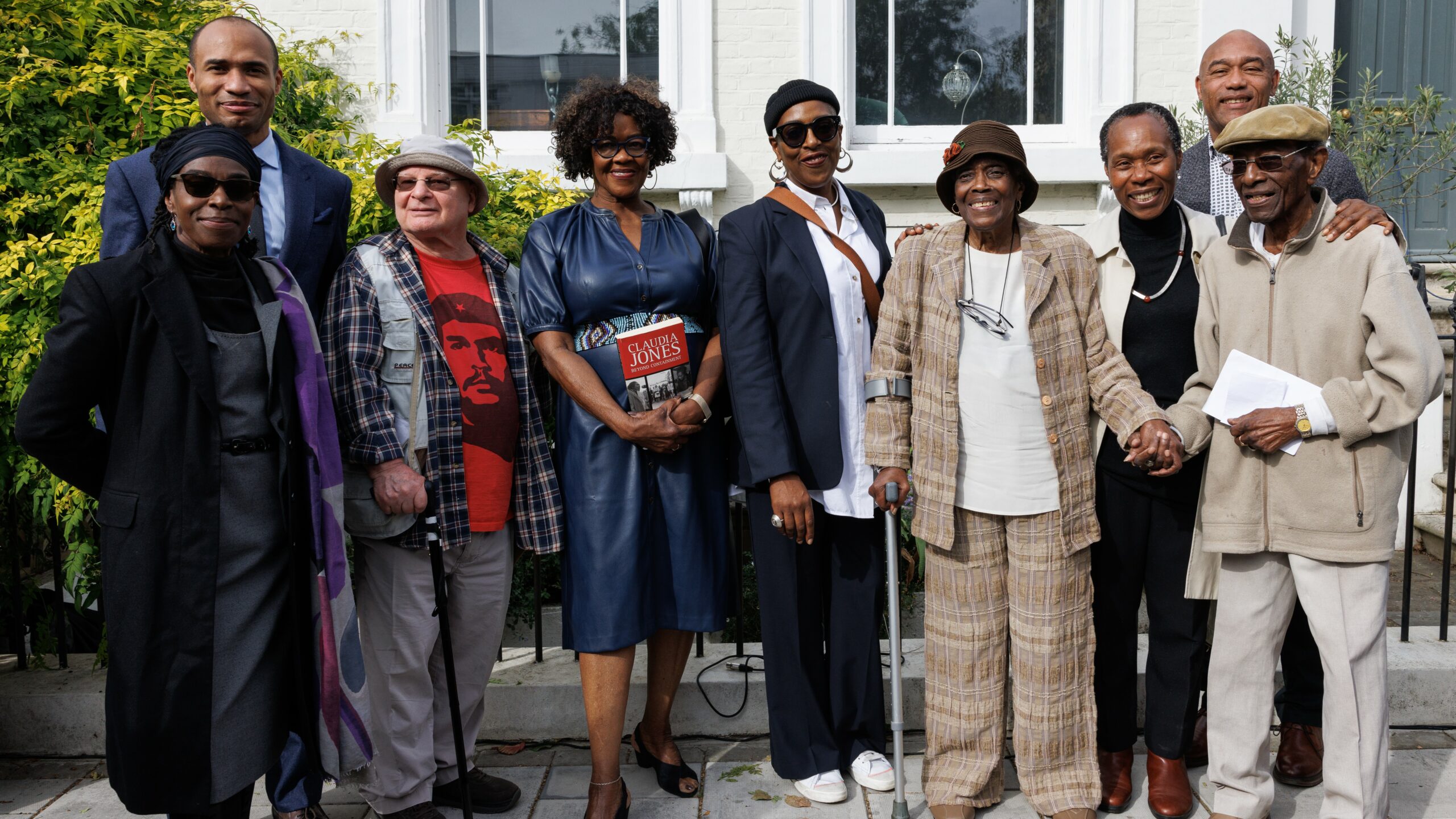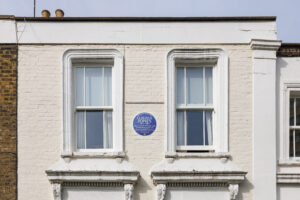
The unveiling took place as Lambeth celebrates Black History Month.
It was during her time living in this shared dwelling that Claudia founded the West Indian Gazette in Brixon and came up with the idea of bringing Caribbean carnival to London. The first carnival took place in St Pancras Town Hall in 1959 and laid the foundations for the Notting Hill Carnival which followed.
Cllr Jacqui Dyer, Lambeth’s Cabinet member for Inclusive Economy and Equalities, said: “Claudia, who was a Trinidad and Tobago-born journalist and activist who made a significant impact in the UK and the US. Her journey began when she migrated with her family to the US as a child, and she quickly became a political activist, feminist, and Black nationalist. To protect herself from political persecution, she adopted the name Jones.
“Unfo rtunately, she was deported in 1955, and was granted asylum in the UK where she spent the rest of her life until her passing.
rtunately, she was deported in 1955, and was granted asylum in the UK where she spent the rest of her life until her passing.
“What marked her out from others was her awareness of the use of culture as a lever to open minds, and thereby drive change. ‘A people’s art is the genesis of their freedom’, she wrote in her first Caribbean event’s programme.
“The influence of her black carnival culture has been felt in Lambeth, including our community carnival Brixton Splash, which had tens of thousands of people attending our street parties from 2006 to 2015. The centre of Brixton was filled with DJs, stalls, and dancing during this spectacular community event. Her newspaper operated from locations on Brixton Road and Loughborough Junction.
“The Lambeth Country Show and events in local parks such as City Splash still carry this spirit today. Her legacy lives on, inspiring generations to come and this blue plaque is a mark of respect and appreciation, commemorating Claudia Jones’ legacy in London.”
Claudia Jones
As an immigrant, and a Communist Jones was targeted by the FBI and jailed four times. Because Trinidad was still in the British Empire she was deported to Britain in 1951 where her activism shifted focus. She set up the West Indian Gazette in March 1958, a monthly mouthpiece highlighting issues of discrimination for London’s 100,000-strong Caribbean community, and quickly becoming an important focus for an emerging West Indian identity in Britain.
After 1958’s race riots in Notting Hill and Nottingham, Jones and the West Indian Gazette discussed ways to ensure it never happened again. One idea was to bring London the spirit and joy, music and dancing of an African Caribbean carnival.
Gus Casely-Hayford, Blue Plaques Panel member, broadcaster and cultural historian, said: “Jones’ part in bringing Carnival to London; founding the West Indian Gazette – almost certainly the first black newspaper on newsstands in Britain; and her unrelenting campaign for racial and social justice made her uniquely galvanising for London’s black community.
“Culture – whether music, art, or dance – will always open minds and drive change, and Claudia saw this better than anyone. In the programme for that first carnival, Claudia wrote ‘a people’s art is the genesis of their freedom’; a sentiment that still rings true today, as we commemorate her legacy with a blue plaque.”



